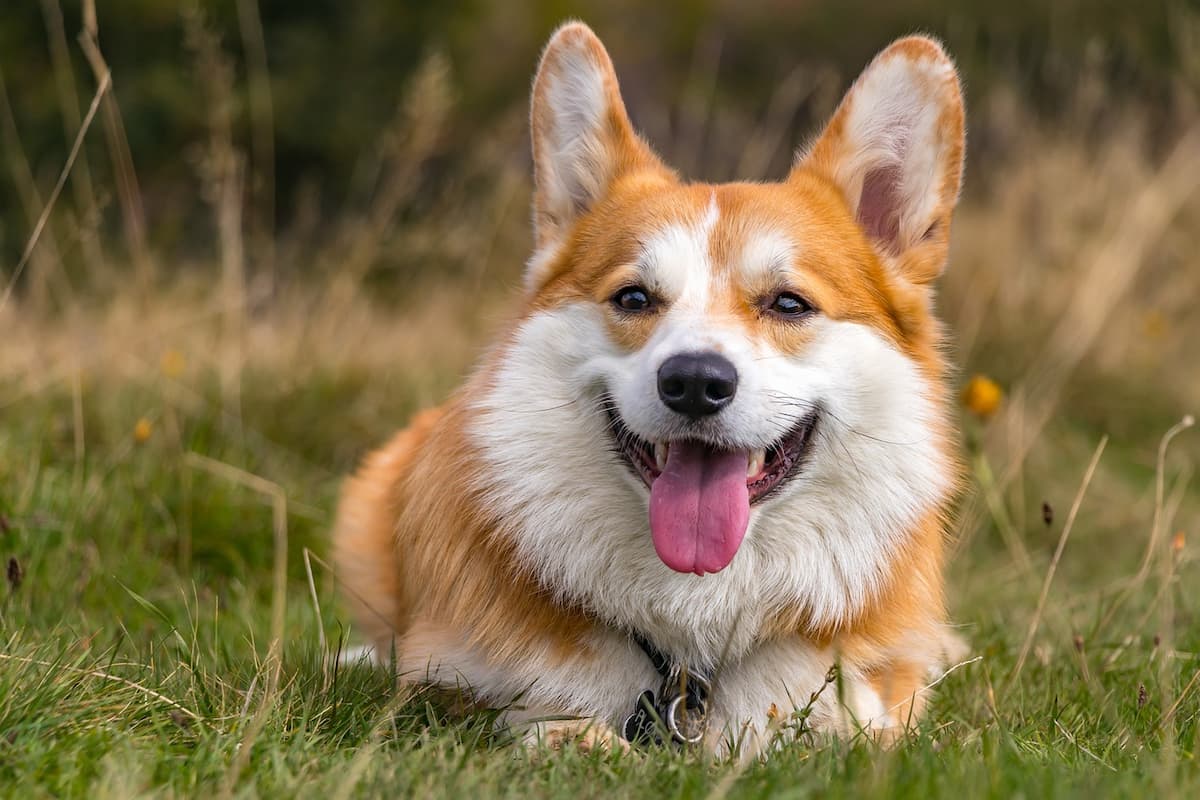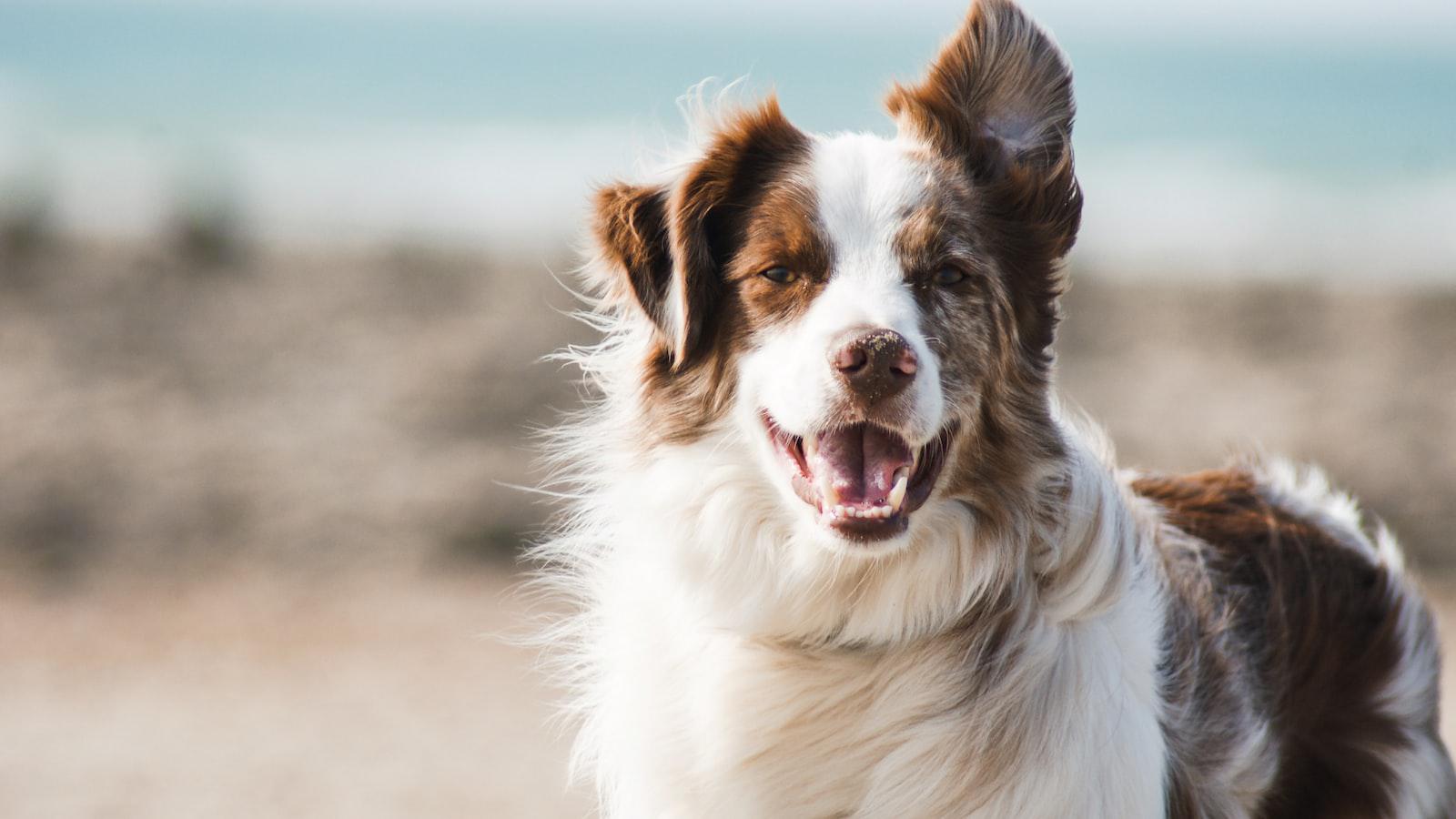Picture this: You’ve just come home after a long day, and as you open the door, your furry friend comes bounding towards you, tail wagging with unstoppable fervor.
His whole body is practically vibrating with excitement, and as you bend down to give him a loving pat, you notice something quite unexpected – a row of shiny, pearly teeth peeking out from behind his playful grin.
Now, you might be wondering, why on earth would a happy dog bare its teeth? This article will shed some light on this intriguing behavior.
The Science behind your Dog’s Toothy Grins
It turns out, this behavior is actually a form of communication for our furry friends, and it can mean a variety of things.
First and foremost, it’s essential to understand that a dog’s grin is not the same as a human smile.
Dogs do not smile in the same way we do, as their facial structures are different.
Instead, their “grin” is a submissive and friendly gesture that demonstrates their relaxed state of mind.
Here are some reasons behind your pooches’ toothy grin:
- Communication: One reason why dogs show their teeth when they’re happy is simply to communicate.
Dogs are highly social animals, and they use a variety of body language cues to interact with each other and with us.
When a dog bares its teeth in a relaxed manner, it’s a way of telling other dogs or humans that they are happy and friendly.
It’s their own way of saying, “I’m glad to see you, let’s play!”
- Playfulness: Another reason why dogs show their teeth when they’re happy is that it’s often associated with playfulness.
Dogs love to play, and when they’re having fun, they may show their teeth as part of their exuberant expression.
It’s like their version of a smile, indicating that they’re ready for some playtime and that they’re enjoying themselves.
- Submission: Believe it or not, showing teeth can also be a sign of submission for a dog.
When a dog is feeling relaxed and content, they may show their teeth in what’s known as a submissive grin.
This is a way for the dog to show deference or subordination, acknowledging that they are not a threat and posing no harm.
It’s their way of saying, “I mean no harm, I am here in peace.
Tips for Interpreting and Responding to a Happy Dog’s Teeth
It’s important to note that not all dogs display their happiness by showing teeth in the same way.
Just like humans have different ways of expressing joy, dogs have their own individual preferences as well.
Some dogs might slightly curl their lips, while others might pull their lips back completely, showcasing their entire set of teeth.
This variation in toothy smiles is often influenced by genetics, breed traits, and an individual dog’s personality.
Here are some tips on how to properly interpret and respond to a smiling dog’s teeth:
- Raised Lips, Relaxed Body: When your dog’s lips curl up, revealing their pearly whites, it’s a clear sign of happiness.
But pay attention to their body language as well.
A happy dog will have a relaxed body, wagging tail, and potentially even squinty eyes.
It’s a beautiful combination that showcases their genuine delight. Remember, their teeth might be showing, but their overall behavior will demonstrate their positive emotions.
- Playful “Grins” vs. Aggression: Many dog owners worry that their dog’s happy teeth display is actually a sign of aggression.
However, there’s an easy way to distinguish between the two.
A happy toothy grin will accompany a relaxed and wiggly body, playful behavior, and often, a panting tongue.
On the other hand, aggression will present with stiff body language, raised fur, growling, and possibly even a low rumble.
So, rest assured that when you see those happy teeth, it’s a sign of love, not a cause for concern!
- Responding with Affection: Now that you can confidently identify your dog’s happy teeth display, it’s time to respond in the best way possible – with love and affection! Dogs thrive on positive reinforcement and responding with joy.
Show them that you appreciate their happiness by offering gentle pats, belly rubs, and even a few kind words.
Additionally, it’s crucial to remember that just like humans, each dog is unique.
So, take the time to understand your pup’s individual preferences and respond accordingly.
Creating a Safe and Positive Environment for Dogs to Express Happiness
To promote a safe and positive environment for your furry companion to express their happiness freely, consider these helpful tips:
- Socialize and train your dog: Proper socialization and training play a crucial role in ensuring your dog feels comfortable and confident in various situations.
Positive reinforcement methods can help them develop good behavior and become well-adjusted to their surroundings.
- Provide mental and physical stimulation: Engage your pup in activities that challenge their mind and body.
Regular exercise, interactive toys, and puzzle games can help them release excess energy in a healthy way, reducing the likelihood of displaying anxious or unwanted behaviors.
- Create a calm and secure space: Setting up a peaceful sanctuary for your furry friend is essential for their emotional well-being.
Designate a quiet area where they can retreat when they need some relaxation time.
This space should include comfortable bedding, soothing music, and access to their favorite toys.
FAQ
Q: Why do dogs do this? Isn’t it a bit confusing?
A: It can indeed be a bit confusing at first, but once you understand their body language, it actually makes a lot of sense.
When dogs raise their lips to reveal their teeth, it’s called a “submissive grin” or a “smile.” This expression is primarily a way for dogs to communicate their friendly intentions and to signal that they mean no harm.
Q: Could you explain more about their body language and what message they’re trying to convey?
A: Of course! When a dog is wagging its tail, has relaxed body posture, and reveals its teeth in a relaxed manner, it’s their way of letting you know they’re happy and approachable.
By showing their teeth, they are essentially imitating a friendly human smile, similar to how we might greet someone with a warm grin.
It’s their adorable way of saying, “Hey, I’m really excited and happy to see you!” Q: Is this something that all dogs do?
A: While not all dogs display this behavior, it is fairly common among many breeds.
Different dogs may express happiness in various ways, as they all have unique personalities.
Some may simply wag their tails, jump around, or playfully nuzzle you.
So, while toothy grins aren’t universal, they definitely fall within the range of happy expressions for many dogs.
Q: I’ve heard that dogs can smile when they want something from us. Is that true?
A: Absolutely! Dogs can learn that showing their teeth in a relaxed manner can be rewarded with attention, treats, or playtime.
Over time, their understanding of the positive response they receive may lead them to smile more frequently when they want something.
So, don’t be surprised if your pup flashes you that irresistible grin when they’re hoping for a belly rub or a tasty treat!
Closing Remarks
From playful bows to tail wags and yes, even those perfectly harmless toothy grins, dogs have their own unique way of letting us know that they’re on cloud nine.
Next time you see a dog happily showing off their pearly whites, you can confidently say that it’s not a sign of aggression or a threat.
Instead, it’s their way of communicating their pure blissfulness.
So don’t be alarmed or run away with fear, but instead, embrace their infectious happiness.
After all, they have a remarkable ability to remind us of life’s simple joys, and their goofy grins are just one of the many ways they do it.
So, keep on loving your dogs and cherish every single moment with them.
Whether it’s a wagging tail, a wet nose, or a brilliant toothy smile, they’re just trying to show us the boundless happiness they feel when they’re around us.
And let’s not forget how lucky we are to have these incredible creatures in our lives, brightening up our days with their genuine, toothy grins.










